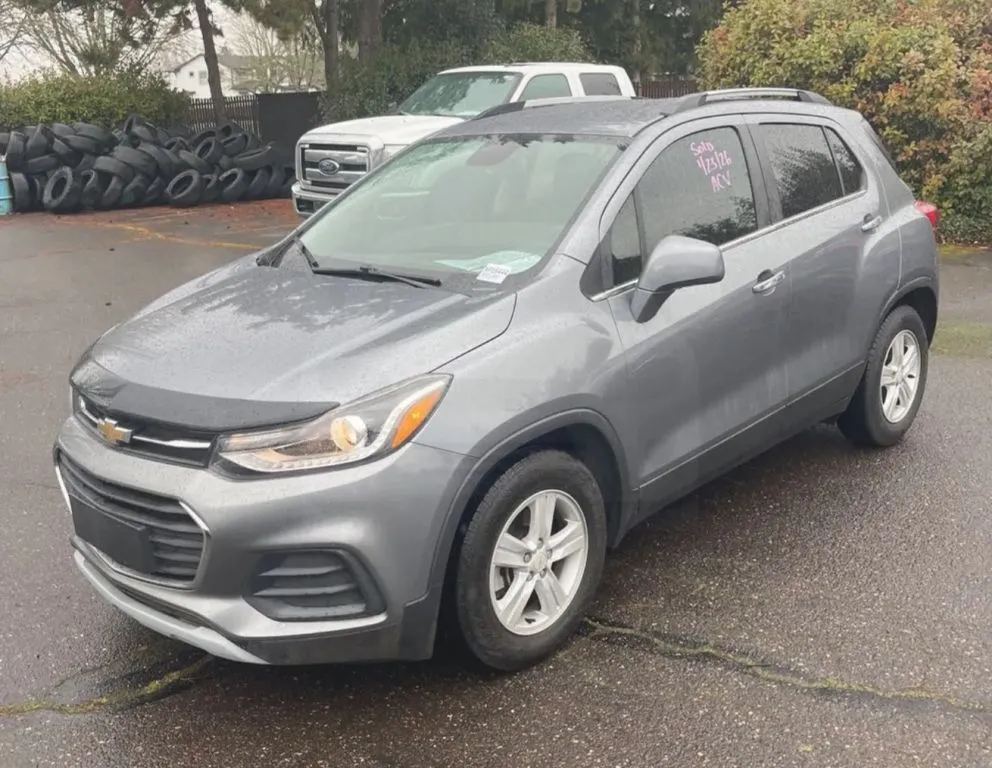Fuel Efficiency Showdown: Gas Mileage Comparison for the Popular Used Vans
Table of Contents
- Importance of Gas Mileage for Van Buyers
- Overview of Popular Used Vans
- Methodology for Gas Mileage Comparison
- Gas Mileage Ratings of Top Used Vans
- 1. Ford Transit: Versatility with Decent Efficiency
- 2. Chevrolet Express: Power Over Efficiency
- 3. Mercedes-Benz Sprinter: Diesel-Powered Efficiency
- 4. Nissan NV: Balanced Utility and MPG
- 5. Ram ProMaster: Unique Design with Strong Diesel MPG
- Factors Affecting Fuel Efficiency in Vans
- Engine Type and Size: Power vs. Efficiency
- Aerodynamics and Vehicle Design: Cutting Through the Air
- Driving Habits and Maintenance: Everyday Efficiency Boosters
- Cost of Ownership: Fuel vs. Maintenance
- Tips for Improving Fuel Efficiency in Vans
- 1. Maintain Steady Speeds
- 2. Reduce Idling
- 3. Proper Tire Inflation
- 4. Lighten the Load
- 5. Regular Maintenance
- 6. Optimize Route Planning
- 7. Use Air Conditioning Wisely
- 8. Smooth Driving
- Conclusion: Choosing the Right Van for Fuel Efficiency

In the world of family transportation and business logistics, choosing the right used van can make all the difference—not just in convenience but also in fuel efficiency. As gas prices continue to fluctuate, understanding the gas mileage of popular used vans is essential for budget-conscious buyers. In this fuel efficiency showdown, we’ll dive into a comprehensive comparison of some of the most sought-after vans, examining their real-world fuel economy, engine performance, and overall value. Whether you're a growing family in need of extra space or a small business owner looking to optimize your fleet, our in-depth analysis will help you make an informed decision. Get ready to discover which vans stand out in the gas mileage arena, ensuring you hit the road with both efficiency and confidence!
Importance of Gas Mileage for Van Buyers

When it comes to purchasing a used van, fuel efficiency often plays a pivotal role in the decision-making process. For many buyers, the allure of a van lies in its spaciousness and versatility. However, these benefits can come at a high cost if the vehicle is a fuel guzzler. With fluctuating gas prices and the growing emphasis on reducing carbon footprints, understanding a van's gas mileage can significantly impact long-term ownership costs and environmental impact. In fact, the environmental impact of EVs is driving many buyers to compare all types of vehicles for efficiency.
For families, a van that offers better fuel efficiency means more savings in the long run. Family outings, road trips, and daily commutes can quickly add up in terms of fuel expenses. A fuel-efficient van ensures that these trips are more economical, allowing families to allocate their budgets to other important areas. Additionally, lower fuel consumption translates to fewer emissions, making it a more environmentally responsible choice.
Business owners, on the other hand, may find that fuel efficiency is directly tied to their operational costs and overall profitability. Vans are often the backbone of small business logistics, whether for deliveries, mobile services, or transporting equipment. A van with superior gas mileage reduces the frequency of fuel stops, minimizes expenses, and enhances the efficiency of business operations. In a competitive market, these savings can be a crucial factor in maintaining a healthy bottom line.
Overview of Popular Used Vans

The market for used vans is vast, with numerous models to choose from, each offering different features and benefits. Among the most popular options are the Ford Transit, Chevrolet Express, Mercedes-Benz Sprinter, Nissan NV, and Ram ProMaster. These vans are renowned for their reliability, spacious interiors, and versatility, making them top choices for both families and businesses. Whether you're finding a van for your personal needs or for business, understanding options is key.
The Ford Transit has long been a favorite in the van market, known for its robust build, versatile configurations, and impressive performance. Available in various sizes and with different engine options, the Transit caters to a wide range of needs, from transporting passengers to hauling cargo. Its reputation for durability and ease of maintenance makes it a dependable choice.
Chevrolet Express is another stalwart in the van segment, offering a no-nonsense approach to transportation. Its straightforward design, powerful engine options, and ample cargo space make it a reliable workhorse. The Express is particularly favored by businesses for its ability to handle heavy loads and endure rigorous use. Some buyers may also consider gas vs. diesel trucks when evaluating efficiency trade-offs. Similarly, the Mercedes-Benz Sprinter stands out for its premium build quality, advanced features, and efficient diesel engine options, making it a popular choice for those seeking both luxury and practicality.
Methodology for Gas Mileage Comparison

To provide an accurate comparison of gas mileage among popular used vans, it is essential to consider a standardized methodology. This involves evaluating the fuel efficiency based on both manufacturer specifications and real-world user experiences. The Environmental Protection Agency (EPA) ratings serve as a benchmark for estimating the fuel economy of these vehicles.
EPA ratings are derived from controlled laboratory tests that simulate different driving conditions. These tests measure the miles per gallon (MPG) a vehicle can achieve in city, highway, and combined driving scenarios. As you explore best used vans in Ekridge or Ellicott City, these fuel efficiency metrics provide valuable insights. While these ratings provide a useful baseline, it is important to note that real-world driving conditions often vary, affecting the actual fuel efficiency experienced by drivers.
In addition to EPA ratings, gathering data from user reviews and fuel economy tracking platforms offers valuable insights into the real-world performance of these vans. By analyzing a broad spectrum of user experiences, we can identify common factors that influence fuel efficiency and provide a more comprehensive evaluation. This holistic approach ensures that our comparison is grounded in both standardized metrics and practical, everyday usage.
Gas Mileage Ratings of Top Used Vans
Fuel efficiency plays a significant role when choosing a used van, especially for buyers focused on lowering long-term operating costs. Whether you're running a business, transporting cargo, or converting a van for personal use, understanding gas mileage can help you make a smarter investment. Below is a breakdown of how some of the most popular used vans compare in terms of fuel economy.
1. Ford Transit: Versatility with Decent Efficiency

The Ford Transit offers a range of engine options that cater to different needs. The base model with a 3.7-liter V6 delivers around 15 MPG in the city and 19 MPG on the highway. For slightly better efficiency, the turbocharged 3.5-liter EcoBoost V6 averages about 16 city and 20 highway MPG. Those seeking a more economical option can look to the 3.2-liter Power Stroke diesel engine, which provides approximately 17 MPG in the city and 22 MPG on the highway—making it a practical choice for longer hauls.
2. Chevrolet Express: Power Over Efficiency

When it comes to Chevrolet Express, fuel economy takes a back seat to towing capacity and durability. The 4.3-liter V6 version gets about 14 MPG city and 18 MPG highway, while the beefier 6.0-liter V8 drops to roughly 11 MPG in the city and 16 MPG on the highway. Despite lower mileage, many buyers appreciate the Express for its long-term reliability and strength under heavy loads.
3. Mercedes-Benz Sprinter: Diesel-Powered Efficiency

The Mercedes-Benz Sprinter leads the pack in fuel economy, especially with its diesel options. The 2.1-liter four-cylinder turbo-diesel engine delivers an impressive 21 MPG in the city and 24 MPG on the highway. Meanwhile, the 3.0-liter V6 turbo-diesel offers around 19 city and 24 highway MPG. For those prioritizing efficiency without compromising cargo space or performance, the Sprinter is a top contender.
4. Nissan NV: Balanced Utility and MPG

The Nissan NV offers a middle ground between fuel economy and performance. Its 4.0-liter V6 engine provides about 13 MPG in the city and 18 MPG on the highway. The larger 5.6-liter V8 option slightly reduces mileage to 12 city and 17 highway MPG. Though not class-leading in fuel efficiency, the NV remains a reliable and spacious option for many buyers.
5. Ram ProMaster: Unique Design with Strong Diesel MPG

The Ram ProMaster stands out with its front-wheel-drive layout and practical interior. The 3.6-liter V6 engine version averages about 14 MPG in the city and 18 MPG on the highway. For improved efficiency, the 3.0-liter four-cylinder EcoDiesel engine shines with approximately 21 MPG city and an impressive 28 MPG highway. This makes the ProMaster one of the most fuel-efficient vans available for those focused on cutting fuel costs.
Factors Affecting Fuel Efficiency in Vans

Fuel economy is a top consideration for van owners and operators, especially those using their vehicles for daily work or long-distance travel. A variety of mechanical, design, and behavioral elements can influence how much fuel a van consumes. Understanding these factors can help you choose a more efficient vehicle and adopt habits that reduce operating costs over time.
Engine Type and Size: Power vs. Efficiency
One of the most influential factors is the engine configuration. Smaller engines, especially those with turbocharging, are typically more fuel-efficient than larger, naturally aspirated engines. For example, a 4-cylinder turbo may provide sufficient power for light-duty needs while consuming far less fuel than a V6 or V8. On the other hand, if towing or hauling is a priority, a larger engine may be necessary—though it comes with increased fuel consumption.
Aerodynamics and Vehicle Design: Cutting Through the Air
The shape and build of a van can significantly impact its ability to conserve fuel. Vans with a lower, more streamlined profile are generally more aerodynamic and require less power to maintain highway speeds. Conversely, high-roof or boxy models create more drag, which forces the engine to work harder and burn more fuel. Considerations like roof racks, extended mirrors, or bulky accessories can also increase wind resistance and reduce overall efficiency.
Driving Habits and Maintenance: Everyday Efficiency Boosters
Your driving style and vehicle upkeep can make or break fuel efficiency. Sudden accelerations, hard braking, and consistent high-speed driving all contribute to increased fuel usage. On the flip side, adopting smoother driving habits and using cruise control when appropriate can help conserve fuel. Maintenance is just as important—clean air filters, well-lubricated engine components, and properly inflated tires can improve performance and reduce unnecessary fuel burn. Regular oil changes and routine inspections also ensure your van runs at peak efficiency.
Cost of Ownership: Fuel vs. Maintenance

When evaluating the cost of owning a van, it is important to consider both fuel expenses and maintenance costs. While fuel efficiency is a major factor, the overall cost of ownership is influenced by various other expenses, including repairs, insurance, and depreciation. A comprehensive analysis helps buyers understand the true financial impact of their vehicle choice.
Fuel expenses are a recurring cost that can vary significantly based on driving habits and fuel prices. Vans with higher fuel efficiency typically result in lower annual fuel costs, making them more economical over the long term. However, it is essential to balance these savings against other ownership costs. For instance, a van with excellent fuel economy but high maintenance or repair costs may not be the most cost-effective option.
Maintenance costs include routine services such as oil changes, tire rotations, brake replacements, and more extensive repairs. Some vans are known for their reliability and lower maintenance needs, which can offset slightly higher fuel consumption. Conversely, vans with lower fuel costs but frequent or expensive repairs may prove more costly to own. Therefore, evaluating both fuel efficiency and maintenance requirements provides a clearer picture of the total cost of ownership.
Tips for Improving Fuel Efficiency in Vans
Maximizing fuel efficiency involves a combination of mindful driving habits and regular vehicle maintenance. Here are some practical tips to help van owners get the most out of their fuel:
1. Maintain Steady Speeds

Avoid rapid acceleration and hard braking, as these actions can drastically reduce fuel economy. Use cruise control on highways to maintain a constant speed and improve fuel efficiency.
2. Reduce Idling

Prolonged idling consumes fuel without moving the vehicle. Turn off the engine if you expect to be stationary for more than a minute. Modern engines do not require lengthy warm-ups, so minimizing idling time can save fuel.
3. Proper Tire Inflation

Keep tires inflated to the manufacturer's recommended pressure levels. Under-inflated tires increase rolling resistance, which reduces fuel economy. Check tire pressure regularly and adjust as needed.
4. Lighten the Load

Excess weight can significantly impact fuel efficiency. Remove unnecessary items from the van and avoid carrying heavy loads when not needed. Every extra pound requires more energy to move, so a lighter vehicle uses less fuel.
5. Regular Maintenance

Follow the recommended maintenance schedule for your van. Regular oil changes, air filter replacements, and timely servicing ensure that the engine operates efficiently. A well-maintained vehicle performs better and consumes less fuel.
6. Optimize Route Planning

Plan routes to minimize unnecessary driving and avoid heavy traffic. Using GPS navigation and traffic apps can help identify the most fuel-efficient routes, reducing travel time and fuel consumption.
7. Use Air Conditioning Wisely

Air conditioning can increase fuel consumption, especially at lower speeds. Use it sparingly and consider alternatives like ventilation or opening windows when driving at lower speeds. On highways, using air conditioning may be more efficient than open windows due to reduced aerodynamic drag.
8. Smooth Driving

Adopt a smooth driving style by anticipating traffic conditions and avoiding sudden stops or starts. Smooth driving reduces the strain on the engine and improves fuel economy. Gradual acceleration and deceleration are key to maintaining optimal fuel efficiency.
Conclusion: Choosing the Right Van for Fuel Efficiency
Selecting the right used van involves a careful balance of various factors, with fuel efficiency being a significant consideration. While each van model offers unique benefits and drawbacks, understanding their gas mileage ratings, real-world performance, and overall cost of ownership can guide buyers toward the best choice for their needs.
The Ford Transit stands out for its versatile engine options and balanced fuel economy, making it a reliable choice for both families and businesses. The Chevrolet Express, while not the most fuel-efficient, offers unmatched durability and load capacity, ideal for heavy-duty tasks. The Mercedes-Benz Sprinter excels in fuel efficiency with its advanced diesel engines, appealing to those seeking a premium, economical option.
Nissan NV provides a practical, reliable choice with reasonable fuel efficiency, while the Ram ProMaster's front-wheel-drive layout and efficient diesel variant make it a strong contender for fuel-conscious buyers. Ultimately, the right van depends on individual requirements, including budget, usage, and maintenance considerations. Resources like 2025 best fuel-efficient used cars rankings can also help guide your decision.
By evaluating the factors affecting fuel efficiency and incorporating tips for optimizing fuel economy, buyers can make informed decisions that align with their financial and operational goals. Whether for family transportation or business logistics, the right used van can offer both efficiency and confidence on the road.








